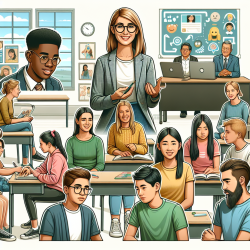Introduction
The ability to understand and infer the mental states of others, known as mentalising, is crucial for effective social interaction. However, children with conduct problems (CP) and high levels of callous-unemotional (CU) traits often exhibit challenges in this area. A recent study titled "Thinking about Others’ Minds: Mental State Inference in Boys with Conduct Problems and Callous-Unemotional Traits" explores these challenges and provides insights that can enhance the practice of special education professionals.
Key Findings
The study assessed mentalising abilities in boys aged 11-16 with CP and varying levels of CU traits. Using tasks like the Movie Assessment of Social Cognition (MASC), it was found that boys with CP and high CU traits (CP/HCU) struggled more with inferring mental states compared to their typically developing (TD) peers and those with CP and low CU traits (CP/LCU).
Interestingly, while these boys could accurately represent others' minds, they showed a reduced propensity to update their mental state inferences based on new information. This suggests a cognitive ability to understand others' perspectives but a lack of motivation to apply this understanding in social contexts.
Implications for Practitioners
For special education practitioners, these findings underscore the importance of tailored interventions that focus not only on enhancing cognitive understanding but also on motivating students to apply this understanding in real-life interactions. Here are some strategies practitioners can implement:
- Integrate Social Skills Training: Develop programs that encourage students to consider others' thoughts and feelings, promoting empathy and perspective-taking.
- Use Real-Life Scenarios: Incorporate role-playing and real-life scenarios in therapy sessions to help students practice mentalising in a safe environment.
- Encourage Reflective Thinking: Prompt students to reflect on their interactions and consider how their actions affect others, fostering a habit of mental state inference.
Encouraging Further Research
While this study provides valuable insights, further research is needed to explore the underlying mechanisms that contribute to the reduced propensity for mentalising in CP/HCU boys. Practitioners are encouraged to stay informed about ongoing research and incorporate new findings into their practice.
To read the original research paper, please follow this link: Thinking about Others’ Minds: Mental State Inference in Boys with Conduct Problems and Callous-Unemotional Traits.










